Search
Did you mean: Louis XVII of France?
Remove Ads
Advertisement
Summary 
Loading AI-generated summary based on World History Encyclopedia articles ...
Search Results
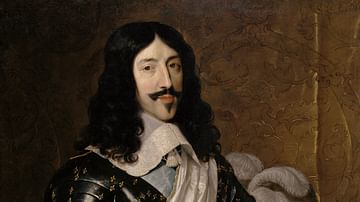
Image
Louis XIII of France
Louis XIII of France (1601-1643), oil on canvas portrait by Philippe de Champaigne, 1635.
Museo del Prado, Madrid.
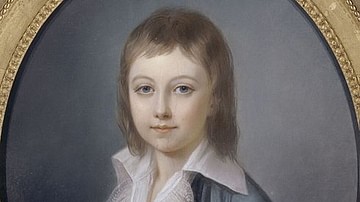
Definition
Louis XVII of France
Louis XVII of France was the regnal name of Louis-Charles de France (l. 1785-1795), the younger son of King Louis XVI of France (r. 1774-1792) and Queen Marie Antoinette (l. 1755-1793). Although Louis-Charles never actually reigned as king...
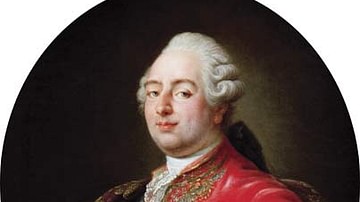
Definition
Louis XVI of France
Louis XVI (l. 1754-1793) was the last king of France (r. 1774-1792) before the monarchy was abolished during the French Revolution (1789-99). An indecisive king, his attempts to navigate France through the crises of the 1780s failed, leading...
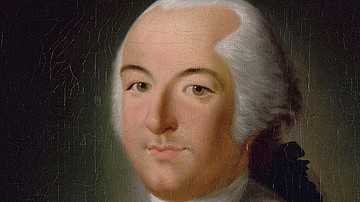
Definition
Louis Philippe II, Duke of Orléans
Louis Philippe II, Duke of Orléans (l. 1747-1793) was a French noble of royal blood. He was the head of the House of Orléans, a cadet branch of the royal Bourbon dynasty, and was a cousin of King Louis XVI of France (r. 1774-1792). Despite...
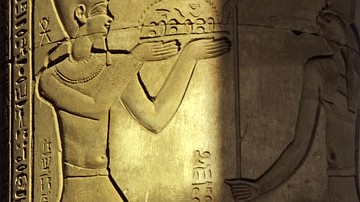
Definition
Ptolemy XIII Theos Philopator
Ptolemy XIII Theos Philopator (The Father-loving God, born 62/61 BCE, died 47 BCE) was pharaoh of Egypt from 51 BCE until his death. His reign began as co-ruler with his sister, the famous Cleopatra VII, following the wishes of their father...
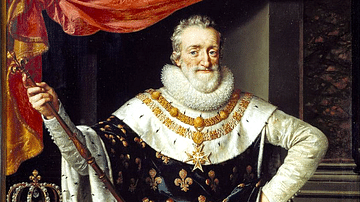
Article
Henry IV of France & the Edict of Nantes
Henry of Navarre became the nominal ruler of France after the assassination of Henry III of France (r. 1574-1589), whose marriage to Louise de Lorraine produced no heir. After years of attempts to deny the throne to Navarre, his enemies realized...
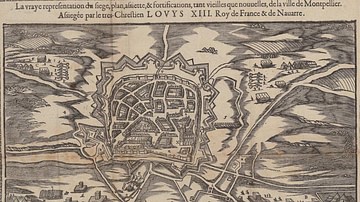
Article
Montpellier during the French Reformation
At the dawn of the French Wars of Religion (1562-1598), Montpellier in southern France had a significant Protestant minority that controlled the city's institutions. The Edict of Nantes in 1598 ended the wars and Protestants retained territorial...
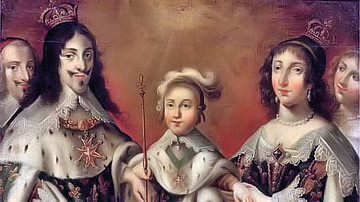
Image
Louis XIII, Anne of Austria, and Their Son Louis XIV
Group portrait of Louis XIII of France (r. 1610-1643), Anne of Austria (l. 1601-1666), and their son Louis XIV of France (r. 1643-1715), flanked by Cardinal Richelieu and the Duchesse de Chevreuse, oil on by the circle of Philippe de Champaigne...
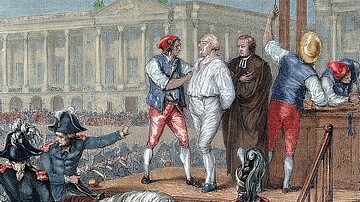
Article
Trial and Execution of Louis XVI
The trial and execution of King Louis XVI of France (r. 1774-1792) was one of the most impactful events of the French Revolution (1789-99). In December 1792, the former king, now referred to as Citizen Louis Capet, was tried and found guilty...

Article
Louis IX and Capetian Politics at Paris' Sainte-Chapelle
The Sainte-Chapelle in Paris was originally consecrated as a private royal chapel in 1248 during the reign of King Louis IX of France (r. 1226-1270), who was known in life as rex christianissimus ('most Christian king') and canonized in death...